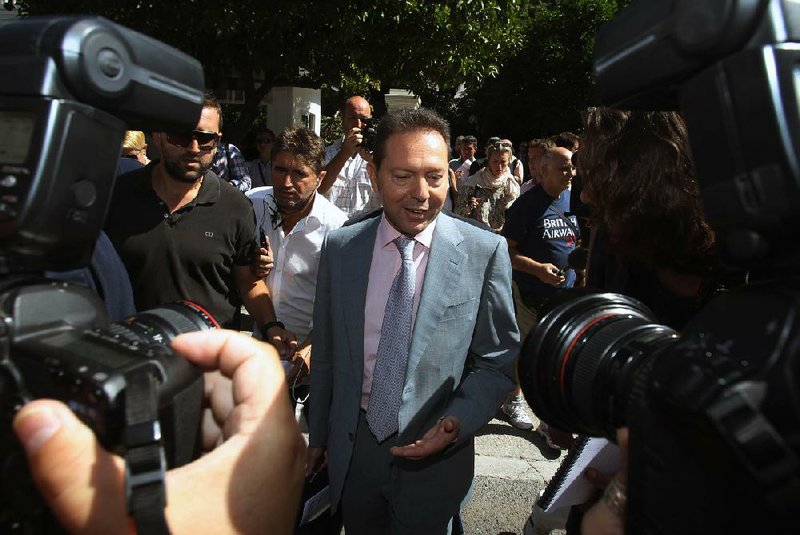ATHENS, Greece — Greece’s coalition government reached a “basic agreement” Thursday on a new round of harsh austerity cuts demanded by its international lenders.
Consenus had to be reached on the measures, secured after weeks of fruitless efforts, or Greece would have been cut off from vital bailout loans that it needs to pay its way and keep it in the 17-country group that uses the euro.
Finance Minister Yiannis Stournaras said the long-delayed agreement placed him in a stronger negotiating position ahead of talks Monday with representatives of the country’s bailout creditors, who will have the final word on the cutbacks.
He said Prime Minister Antonis Samaras’ deliberations with the heads of his two junior coalition partners resulted in “a basic agreement” on the measures intended to ax some $14.8 billion off state spending in 2013-14.
Under its bailout commitments, the government must also increase state revenue by an additional $2.6 billion over the next two years through tax change and improved tax collection.
The three-party meeting came a day after more than 50,000 anti-austerity protesters took to the streets of Athens, in a demonstration marred by clashes between hooded youths, some throwing Molotov cocktails, and police.
Greece has relied on international bailouts since May 2010. In return, it imposed a punishing austerity program, repeatedly lowering incomes and raising taxes and retirement ages. The new measures are expected to include further pension and salary cuts and raise the age of retirement from 65 to 67.
Parliament is expected to vote on the cutbacks between Oct. 8, when eurozone finance ministers meet in Luxembourg, and the Oct. 18-19 European Union summit, a Greek government official said.
The government should easily win the vote, despite fierce opposition from anti-austerity parties and potential dissenting votes, as it controls 178 of the house’s 300 seats.
Approval from EU, International Monetary Fund and European Central Bank officials monitoring the country’s threeyear effort to right its finances will allow the disbursement of $40 billion, expected after mid-October.
With that money, the payment of which was delayed for months after two successive national elections in May and June, Greece will complete the recapitalization of its battered banking system and pay off longoutstanding debts to domestic suppliers.
Without the cash, the country would have trouble paying its bills. That could force Greece to default on its debts and, possibly, ditch the euro.
The conservative-led coalition has been debating the new cutbacks for about two months, but a deal was delayed by opposition from the two center-left junior partners — coupled with disagreements with European Union, International Monetary Fund and European Central Bank austerity inspectors.
Fotis Kouvelis, head of the small Democratic Left party,
1
said after Thursday’s 2 /2-hour talks that, despite the overall agreement, “some issues are still outstanding.”
And Socialist Pasok leader Evangelos Venizelos said he would “struggle to the end to ensure that these measures are not across the board and are fair ... and that they are truly the last,” as Samaras has pledged.
Information for this article was contributed by Elena Becatoros of The Associated Press.
Business, Pages 27 on 09/28/2012

